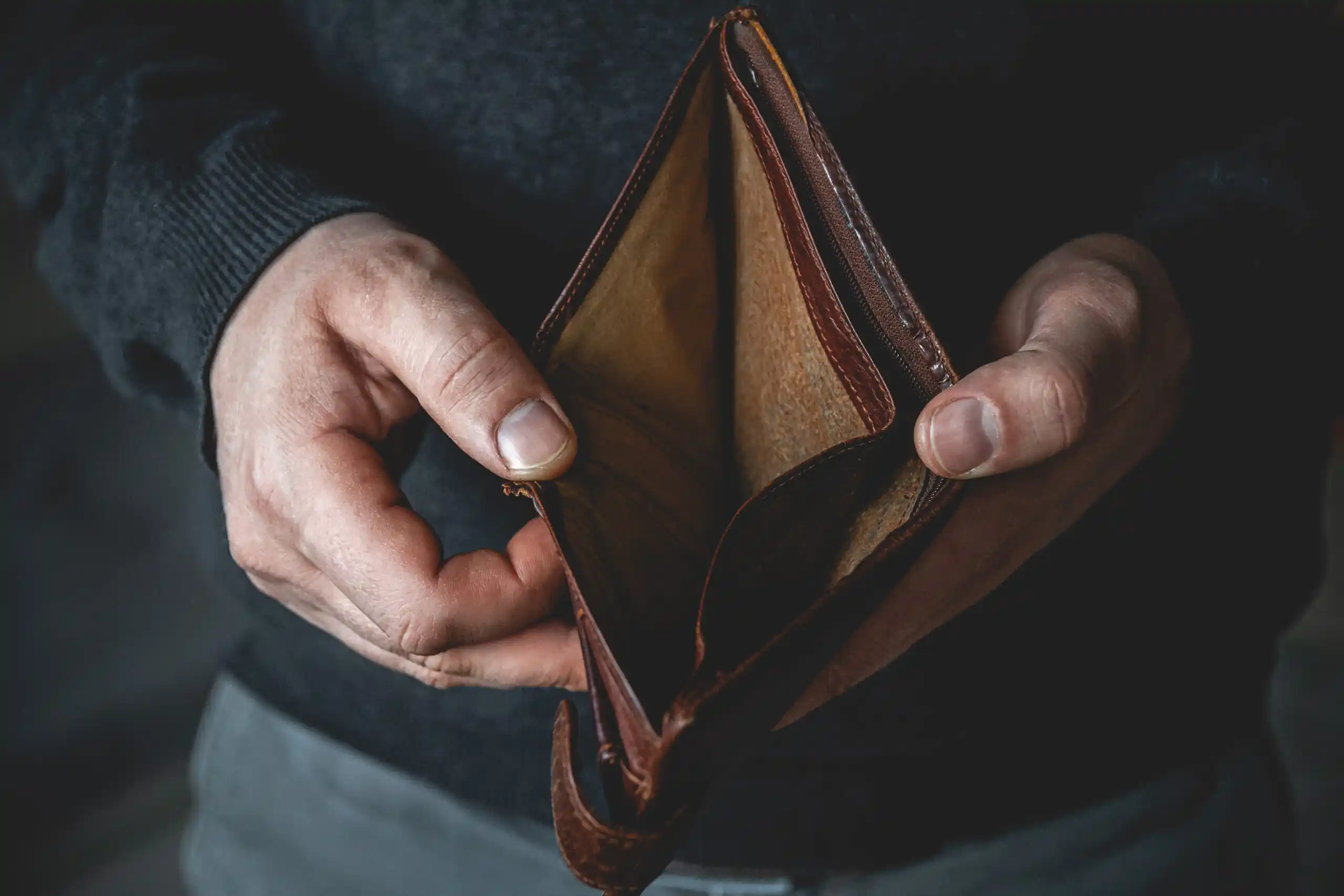You probably know that the key to financial success is living within your means. The real question, though, is are you truly doing that? Lots of people think they are living within their means, only to find themselves in deep debt down the road. Then they struggle to figure out how it happened. If you’re only paying the minimum required payment on your credit card balance or are one unexpected hiccup away from financial ruin, you’re probably not actually balancing your budget properly. In order to really take control of your personal budgeting, you need to make sure you’re living within your means. So what does that really mean, anyway?
Are You in Denial About Your Spending Habits?
Plenty of people say they live a lifestyle that is more than they can afford when times are good. However, this doesn’t match up with how many people go into debt to fund their lifestyles. If your monthly spending exceeds your monthly income numerous times in the year, you might be in trouble. And if you need to get a loan or rack up credit card debt to cover the shortfall, I would argue that you really aren’t truly living below your means.
For whatever reason, there are plenty of people who think they can afford their current lifestyles — even though their expenses are exceeding their incomes a significant portion of the time. It’s a real problem, and one that is bound to catch up to you in the long run.
The Disconnect: Can You Really Afford Your Current Lifestyle?
Are you one of these people? It’s time for some brutal honesty. Can you really afford your current lifestyle? Do you dip into savings in order to meet your obligations every once in a while? When you do, is it for true emergency purposes? Or just because you (once again) splurged on something you didn’t really need? If you’re using savings or credit to cover yet another fun night out or impulse purchase, you probably can’t truly afford your lifestyle.
I get it, though. It may not even register that you’re living beyond your means if you don’t go into debt. Remember though, digging into your savings can be just as damaging. It just won’t hit you until later, when you really need that money you foolishly wasted. If you have to dip into your savings regularly, you aren’t truly living within your means. After all, your savings will one day run out. After that, you’ll just start going into debt. You also have to worry about retirement, when you really have to rely on your savings to fund the rest of your life’s expenditures.
 Shutterstock
ShutterstockPay Off Your Credit Card in Full Every Month
Here’s a really simple way to know whether you’re living within your means. Do you pay off your credit card balance every single month? Or do you let a balance roll over? If you’re not paying it off (and racking up costly interest charges), you need to reevaluate your spending. Yes, even if you are paying more than the minimum payment.
The bad news is that those who routinely carry a credit card balance are rarely able to pay them off. That’s because they don’t realize how destructive a 20% APR can do to their financial future. They never adjust their spending, and instead rely on the convenience of using plastic. Eventually, these behaviors catch up in a costly way.
You really need to stop this behavior if this describes you. One day, you will approach the credit limit. The interest charges start to become more noticeable too. Your savings will slowly deplete until you realize — when you really have an emergency — that you don’t have what you need.
Here’s How to Truly Live Below Your Means
Spend less. It’s really that simple. Spend less than you make and don’t get into debt to make one-time purchases. You get a pass for a huge purchase like a house, but don’t go into debt for anything else! The only other option is to make more money, which we’ll talk about more in a minute.
I know it’s hard. You may think that you’re only spending money on the things you really need. However, some careful self examination will probably reveal that isn’t the whole truth. The next time you make a purchase, it’s a good idea to stop and think about why you are buying that item. Here are some great ways to save, without skipping your morning Starbucks.
Stop and Think Next Time You Buy
One of the reasons we have such a consumer driven culture of debt in this country is that very few Americans really stop to consider our purchase decisions. I’m not talking about whether you make poor spending decisions or not. It’s more about the motivation behind these spending decisions.
Most things can be broken down into some basic categories: Needs, Wants, and Nice to Have. Unfortunately, many people make the mistake of mislabeling their expenses. Maybe you need a smartphone for communication. But do you need the $1,200 brand new iPhone with all the latest bells and whistles? Probably not. Once you understand why you buy the things that you do, it’s a little bit easier to reform your behaviors.
Things You Need
Some items, like groceries, are bought out of necessity. You need food to survive. Clothing is also a basic requirement of living in our society. Shelter is a necessity too. There are a number of things that are needs, and we buy them because they are essential for our survival and well-being. Still, you need to explore the nature of true needs as you consider your spending choices.
Yes, you need shelter. But do you need a huge home for a four-person family? Sure, you need to eat. But are you shopping at Whole Foods or a budget grocery store? Even worse, are you choosing to eat out (or order in) when you’re totally capable of making your own meals for less? Consider your needs and why you are buying something. You might discover that, in fact, what you “need” is actually something you are buying for other reasons.
 Shutterstock
ShutterstockThing You’re “Supposed” To Have
We’re all supposed to have a TV and internet access, right? We’re all supposed to buy homes. There are lots of things that we’re expected to do because everyone else is doing them. Sure, I recently bought a house. But I could have bought a more expensive home than the one we chose. Yeah, I wanted that bigger house. But we didn’t truly need it.
Are you making purchases to impress others? What about your car? Do you need a newer luxury model? Or will a used Civic get you to work just as efficiently? We often have a desire to be accepted by our peers. That can mean buying things we don’t truly need, just because we think we’re “supposed” to have them. New golf clubs? That designer handbag? The latest gaming console or iPad for the kids? Don’t go broke because you think you need to keep up with the neighbors.
Making it even harder, advertisers use a number of strategies to convince you to spend more money than you should. It makes this particular temptation a hard one to avoid.
You Want It
I firmly believe that if you really want something, you should buy it. (Assuming you have the money for it, of course.) However, make sure you really want it for you — not for the purpose of impressing others. Consider your priorities and values. Your true wants should align with that. I hardly ever upgrade my TVs to the latest and greatest models, simply because I don’t actually want to. Sometimes, I think that a top-of-the-line model in every TV room would be nice. But that’s the same as truly wanting it.
As soon as I think about how much upgrading the TVs would cost (and put it in terms of going on a trip or some other priority), I realize that there are more important things to me. Make sure you have your wants straight. Otherwise, you’ll make purchases that you think are “okay” – and wake up one day realizing that you have buyer’s remorse.
Giving Up Those Credit Card Rewards Could Help
If you really want to turbocharge your savings, you might want to completely swear off credit cards. It’s hard, I know. There are some great rewards and that’s like free money. However, paying with a credit card is sometimes too easy and convenient that you end up spending more than you planned. Did you know people spend an average of 30% more when they use cards to pay instead of cash? Exactly how much cash back are you getting? Probably not 30%, that’s for sure.
If you’re worried about your credit score, you may want to just cut them up. This way, your account will still be active but you won’t have a way to use it. One of my friends even put her credit card in a cup of water and froze it. That way, if she really wants to use it, she has to take the time to unthaw it first. It sounds crazy, but these bizarre sounding tactics really work. Give it a try if you are looking for some more help.
 Shutterstock
ShutterstockLooking Back Helps
Sometimes I look around my house and take a mental inventory of things. I think about all of the “wants” I’ve purchased, and whether I really care about them. Some items, like my computer and monitor, are used repeatedly and well worth the cost. Others, like a fancy lamp or the Nintendo Switch, are barely used anymore.
Those things that don’t hold their value or bring a smile to your face long after the purchase probably weren’t worth the money. I make a mental note of these things, so I can hopefully make smarter decisions the next time I’ve considering a similar purchase. By thinking consciously about past spending decisions, I improve my decision making in the future. Interestingly, I play on my PS4 quite a bit. I definitely feel like it was worth the investment, unlike my Nintendo Switch. You really have to know yourself to know what kind of goods are worth it for you.
Consider Taking on a Side Hustle
If you truly can’t find any ways to spend less money, you’ll have to figure out how to make more. When you’ve cut out everything that can be cut, but still struggle to get into the black every month, you don’t have many other choices. For some people, it’s not the spending that’s the problem. It’s the lack of sufficient income.
Consider getting a second job or some type of a side hustle to supplement your income. The beauty of another income stream is that you are more protected from losing your income entirely. The rise of remote work has made finding a side gig easier than ever before. Additionally, you’re won’t have as much time to think about ways to spend your money if you’re busy earning it. It’s a double whammy, but in a good way.
The Bottom Line
Living below your means is the most important part of the journey to be financially independent. However, you won’t make much progress if you keep fooling yourself to think that you are spending less than you earn.
Take a step back and be honest with the whole situation. If you still have credit card debt, then it’s time to really look at your spending habits. Recognize that you might not really be living within your means and that your lifestyle might not be so affordable after all. Create a spending plan and then stick with it to reform your habits and get back on track.








